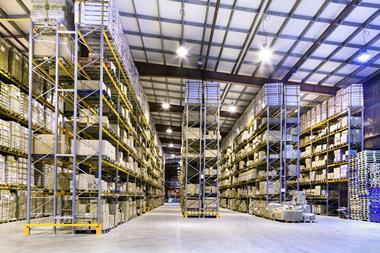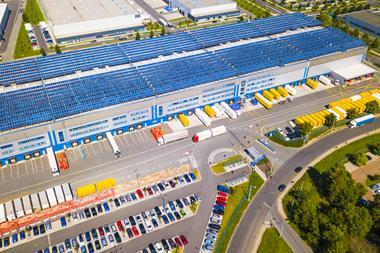Industrial intensification has been a topic of discussion for a number of years in London, as planning policy and supply-and-demand dynamics have moved the market in this direction.

This will be the year where this becomes a reality, with construction starting on a couple of sites in the capital. We have seen design and innovation playing a bigger role in this market, providing much-needed new industrial floorspace to the city.
The GLA set out the mission for industrial intensification within the New London Plan to acknowledge the loss of industrial land that has taken place and also to look at providing a solution to intensify land in London.
Several schemes are being considered, with each unique to the site that it sits on. BeFirst, the regeneration arm of Barking and Dagenham Council, has brought forward the first on-site scheme, Industria, which is unlikely to be the only public-funded intensified industrial scheme that will come forward in London over the next few years. Support from local authorities and the GLA around these new developments demonstrates the need to intensify industrial land to help service the growing economy. It is great to see the council backing a new scheme such as this in London and it will be the first of many more to come in a city that is severely constrained by land supply. St George’s and SEGRO are also expected to start construction later this year on SEGRO V-Park Northfields in Park Royal.

Outside London, other larger cities are seeing a significant demand-and-supply imbalance of industrial floorspace in markets. There is record demand from new industrial occupiers, particularly the Q-commerce companies, which are all looking for space in regional cities.
Over time, we could start to see the consideration of industrial intensification in large cities across the UK, where land is very constrained. Local authorities will be thinking about cities of the future and they may find that in the next few years – from looking at London and how industrial land has been intensified – it could be a solution they could consider for their own cities where land availability is tight.
Tessa English is head of urban and city logistics at JLL






























No comments yet